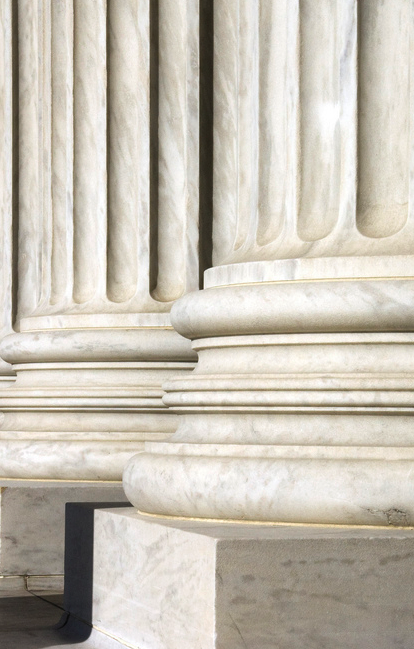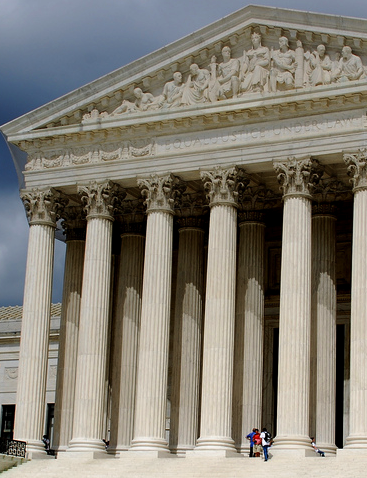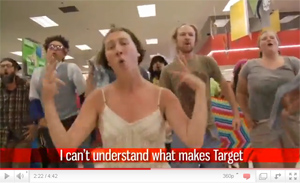That money talks in Washington is conventional wisdom for a reason. Corporations, industries, and a handful of extraordinarily wealthy individuals spend big bucks on campaigns and on lobbying not for fun, but because they expect to get something back in return. And while adding up all those expenditures is comparatively straightforward, finding out who gets how much back has been harder… until now. A new study finds that billions of dollars might go into D.C., but trillions are coming back out. [More]
citizens united

How Corporations Got The Same Rights As People (But Don’t Ever Go To Jail)
In every common-sense, everyday way, a corporation is not a person. Corporations don’t date, don’t have families, don’t go catch a movie on Friday night. They also don’t go to jail when they do something criminal. But in the eyes of the law, corporations enjoy many of the same rights — including free speech and religious expression — and protections afforded to individuals. [More]

How To Buy A Politician: What Today’s Supreme Court Ruling Means For Consumers
Everyone knows that money talks. But today, the Supreme Court made it official: political donations are speech. Therefore, they ruled, the right to free speech guaranteed by the First Amendment applies to them too. And that means removing the limits. [More]

Supreme Court Ruling Removes Campaign Contribution Limit
Earlier today, the Supreme Court issued a much-anticipated decision in a case involving limits on donations to political campaigns. In a 5-4 decision, the Supremes ruled that caps placed on an individual’s total campaign contributions were a violation of their First Amendment rights. [More]

Supreme Court Upholds Corporations’ Right To Unlimited Campaign Spending
It’s been two years since the U.S. Supreme Court issued its ruling in the Citizens United v. Federal Election Committee case and declared that limiting corporate spending on political campaigns is a violation of businesses’ right to free expression. Today, the Supremes affirmed that controversial decision by striking down a 100-year-old Montana law that capped spending on state-level elections. [More]

Vermont Lawmakers Vote For Constitutional Amendment To Declare That Corporations Are Not People
In January 2010, the Supreme Court ruled in the case of Citizens United v. Federal Election Committee that it was unconstitutional to limit political campaign spending by corporations, thus helping to usher in the current era of the “super PAC.” Today, Vermont’s state legislature became the latest to call for an amendment to the Constitution that would overturn the controversial court ruling and declare that “money is not speech and corporations are not persons under the U.S. Constitution.” [More]

Guess What? Letting Corps. Make Anonymous Unfettered Political Donations Quadrupled Contributions!
A year ago, the Supreme Court ruled that corporations could not be banned from political spending during elections through either independent expenditures from corporations’ general funds or “electioneering communications,” i.e. political ads. Detractors cried out that it would let loose a flood of corporate cash into elections, and they were right. A new Public Citizen report shows that outside groups quadrupled their contributions during the last mid-term election from the previous, and we will never know exactly where a good deal of the money came from. [More]

In-Store Dance Protest Hits Target, To The Tune Of "People Are People"
Wondering how that Target boycott is going? Here’s a video of an in-store protest complete with dance routine and Improv Everywhere type theatrics, set to the tune of Depeche Mode’s “People are People.” [More]

Why Target And Best Buy's Support Of Anti-Gay Bigots Is Going To Change The Way You Shop Forever
Target gave $150,000. Best Buy chipped in $100,000. Companies supporting politicians or their political action committees isn’t new. A quarter-million dollars for Minnesota Forward—a group that supports anti-gay rights candidates like Tom Emmer—might seem like a gay rights issue, but it’s so much more. It represents the next frontier in consumer activism and a world where every purchase acts as a political statement. Join us inside as we explain. [More]


